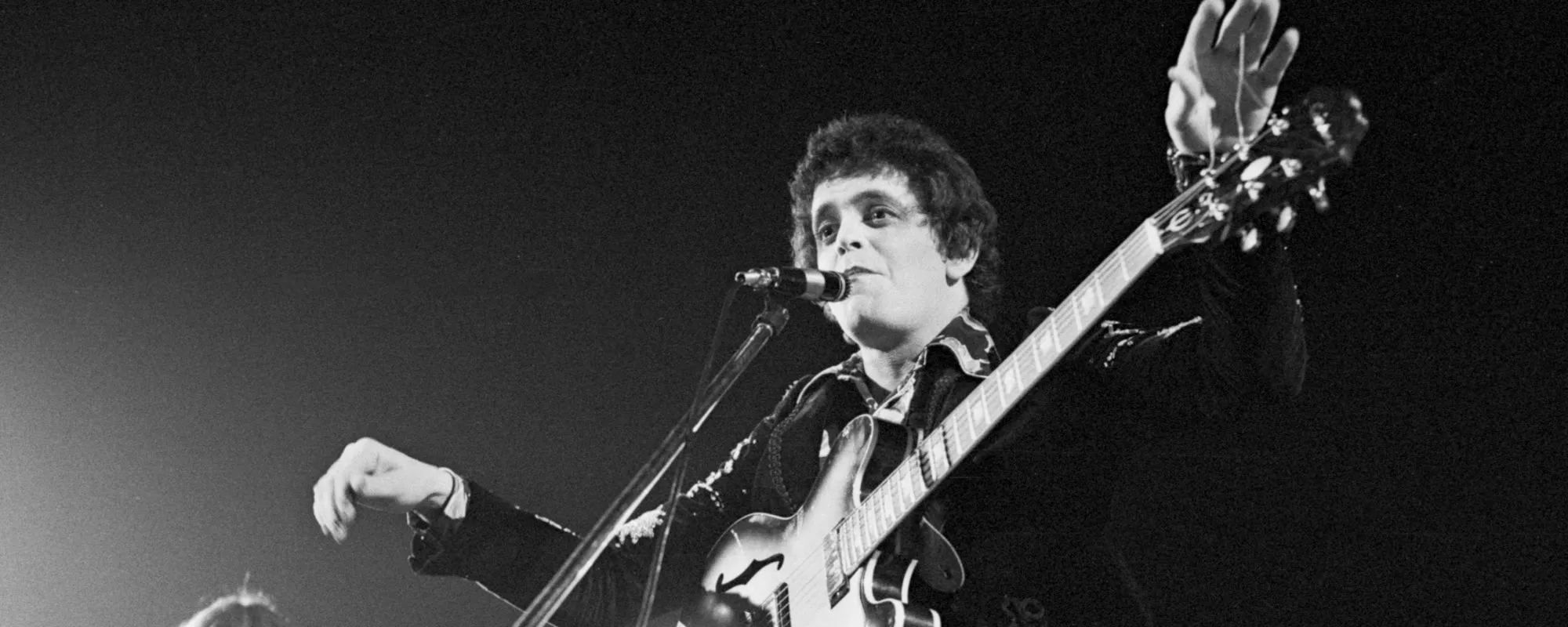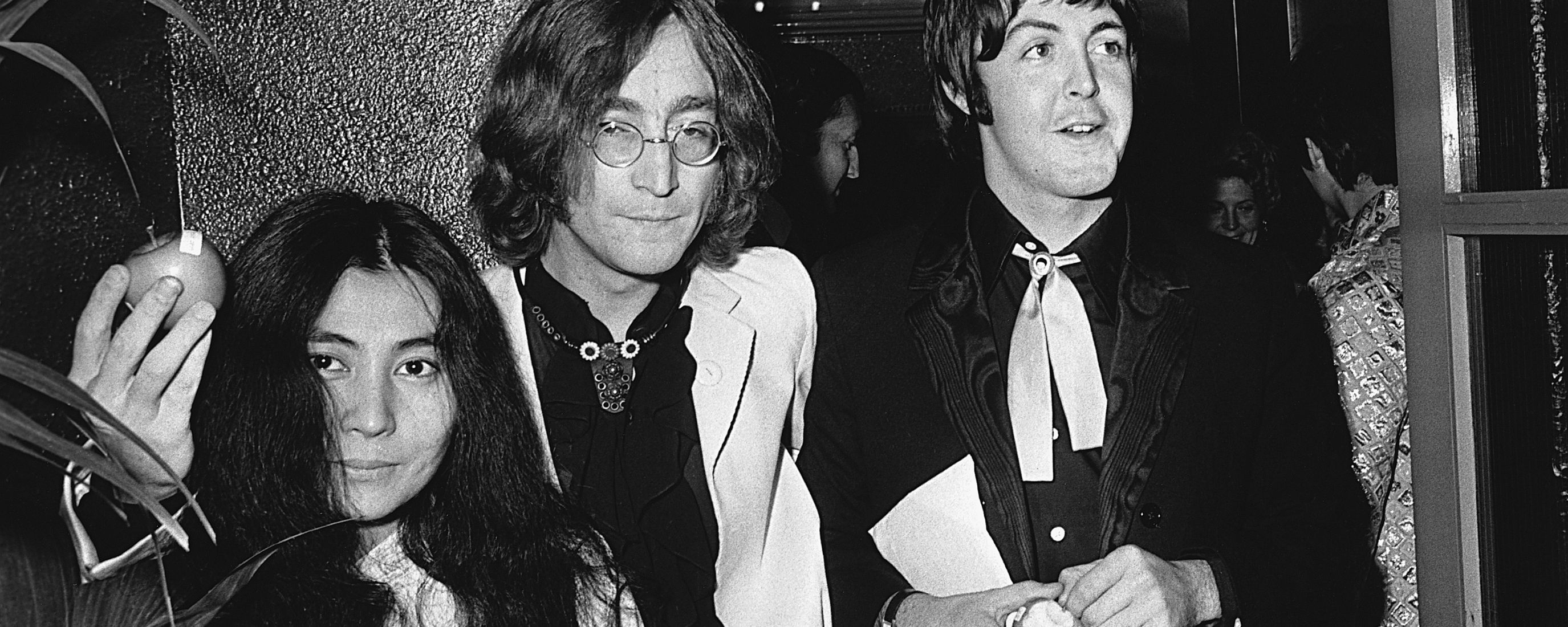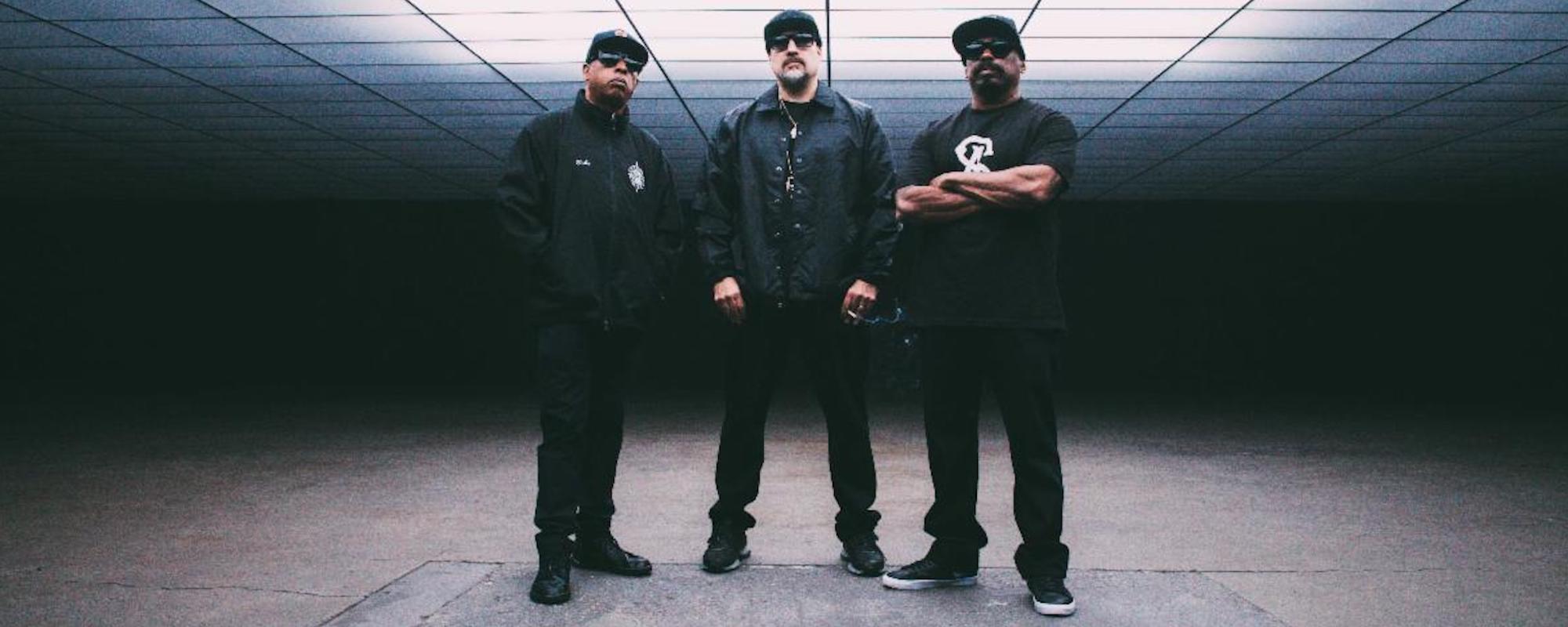On 4 June 1976, Sex Pistols played at the Lesser Free Trade Hall in Manchester, England. Just above the Manchester Free Trade Hall, where Bob Dylan also performed his famous 1966 bootleg concert. It was here that Dylan upset folk purists by plugging in his electric guitar. And faced down a heckler who called him Judas.
Videos by American Songwriter
Dylan’s electric concert ushered in a new rock and roll movement. A decade later, at the same location, Sex Pistols helped ignite the first wave of British punk rock. Let’s revisit this groundbreaking band along with two others who changed British youth culture in the late 70s.
Sex Pistols
Malcolm McLaren witnessed a new scene at New York’s CBGB. After briefly working with the New York Dolls, McLaren returned to London and oversaw the formation of a new group of musicians who’d been hanging around his anti-fashion shop, SEX. Co-owned with Vivienne Westwood, the boutique became ground zero for punk fashion and a chaotic new band called Sex Pistols.
Johnny Rotten, Steve Jones, Paul Cook, and Glen Matlock recorded only one album, but it was enough to forever change the course of music history: Never Mind The Bollocks, Here’s The Sex Pistols. (Sid Vicious appears on two songs, “Bodies” and “God Save The Queen”.) Sex Pistols threatened the establishment, and when Never Mind The Bollocks arrived, everything before it felt like the past.
Buzzcocks
Buzzcocks stood apart from the machismo rage defining most first-wave British punk bands. Pete Shelley, instead, infused his sped-up riffs with Beatles-wrung melodies and self-deprecating tales of young love. Opposite the Sex Pistols’ shocking antics, Shelley told Melody Maker in 1978, “We’re just four nice lads, the kind of people you could take home to your parents.”
Between 1977 and 1979, Buzzcocks released three albums: Another Music In A Different Kitchen, Love Bites, and A Different Kind Of Tension—and a near-perfect singles collection called Singles Going Steady. Start with “Ever Fallen In Love”, but also notice how “Orgasm Addict” provides the “me time” blueprint for Green Day’s “Longview”.
The Clash
Audience members who experienced early Sex Pistols shows saw the future. And this future didn’t give a … you know what I mean. Mick Jones and Joe Strummer stood in awe. So did future members of Buzzcocks, Joy Division, The Fall, and The Smiths. So, Strummer quit his pub rock band and joined a new group formed by Jones, the bassist Paul Simonon, and guitarist Keith Levene, who was fired in 1976.
Topper Headon replaced original drummer Terry Chimes, and The Clash’s fusion of rock and roll, reggae, and left-wing politics was consequential to the emerging British punk movement. Writing about the band’s enduring influence, The Edge said, “The Clash, more than any other group, kick-started a thousand garage bands across Ireland and the U.K.”
Photo by Gus Stewart/Redferns










Leave a Reply
Only members can comment. Become a member. Already a member? Log in.